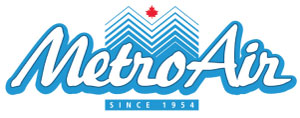An energy-efficient alternative to furnaces and air conditioners, heat pumps are an all-weather climate control option for homes and commercial buildings. Heat pumps work with the same technology used by refrigerators, whereby they use electricity to warm or cool air and pump it into the desired space.
During the cold season, heat pumps move outside air into the unit to heat it. During the hot season, it pulls air from the home and recirculates, dehumidifies, and cools it. According to Energy.gov, heat pumps transfer heat from electricity rather than generate heat by burning fossil fuels, which is far more efficient than traditional furnace technology. New advancement in furnace technology is starting to level the playing field, however.
There are three main types of heat pumps: geothermal, water source, and air to air. These heat pumps collect and concentrate heat from the earth, air, and water outside your home. Each technology works a little bit differently.
Air to Air or Air-Source Heat Pumps
Most heat pumps used today are air to air or air source heat pumps, and they reduce energy expenditures by up to half compared to baseboard heaters, radiators, or furnaces. Not only are air to air heat pumps energy efficient, but they also dehumidify muggy summer air and increase the comfort of your home or business.
While air-source heat pumps are popular in warmer American climates, Ontario HVAC technicians have waited until the technology became efficient for subfreezing temperatures. In recent years, technology has caught up and now heat pumps are being installed all over Ontario. Some homes don’t have ductwork installed, which can be a major expense for homeowners. For homes without ducts, mini-split heat pumps are ideal. These air-source units use reverse cycle chiller technology, which heats or cools water that’s pumped through radiant floor heat systems.
Geothermal Heat Pumps
Geothermal heat pumps are either ground-sourced or water-sourced. These units are very efficient because they transfer heat or cold from the earth or water to your home. The initial investment in these systems is larger than air to air heat pumps, but they cost much less to use. Ground-source heat pumps are advantageous because they’re incredibly efficient. They can reduce energy usage by up to 60% and still control the humidity in the air. These units have a long lifespan and can fit into nearly any size of home. Thanks to relatively constant ground temperatures, geothermal heat pumps are an excellent, reliable source for climate control. An HVAC technician can tell you whether your subsoil and landscape make it possible to have a ground-source or water-source heat pump.
Absorption Heat Pumps
Absorption heat pumps are a relatively new technology. Because of the large size of the units, they’re primarily used for residences. These are usually natural gas-powered heat pumps, but they can use solar steam-water heat, geothermal, or air to generate or transfer heat. Absorption heat pumps use heat alone to power both the air conditioner and heater. Because natural gas is the primary existing source of heating in homes in Ontario, this flex-fuel heat pump will likely grow in popularity.
This type of heat pump is a new and complex technology, though they are rather efficient. They’re run using an ammonia-water absorption cycle. Just like standard heat pumps, refrigerant is condensed in a coil to release its thermal energy. The pressure fades and the ammonia water evaporates to once again absorb heat. The pump pressurizes the hot or cold ammonia water to operate. When the thermostat is set to cool, it absorbs heat and uses a heat cycle to cool. If it’s set to heat, it uses cold air and cool thermal energy to heat.
Traditional Furnaces vs Heat Pumps
Furnaces heat air by burning natural gas or oil and use electricity to run a blower motor that pushes the heated air into the home through ductwork. Furnaces only produce heat, and traditional furnaces aren’t very efficient at doing that. However, recent advancements in technology make furnaces up to 98% efficient, meaning just 2% of air escapes the system and is wasted.
If you already have an air conditioning system and don’t want to make a large investment in a heat pump, an efficient furnace model is a good, money-saving option. Pinnacle Group has a variety of heat pumps and furnaces available to choose from. Whether you’re considering geothermal, air to air, or natural gas-powered absorption heat pumps or you’re thinking about a traditional furnace, speak with a Pinnacle Group customer service representative to go over the best options for your home and budget!


